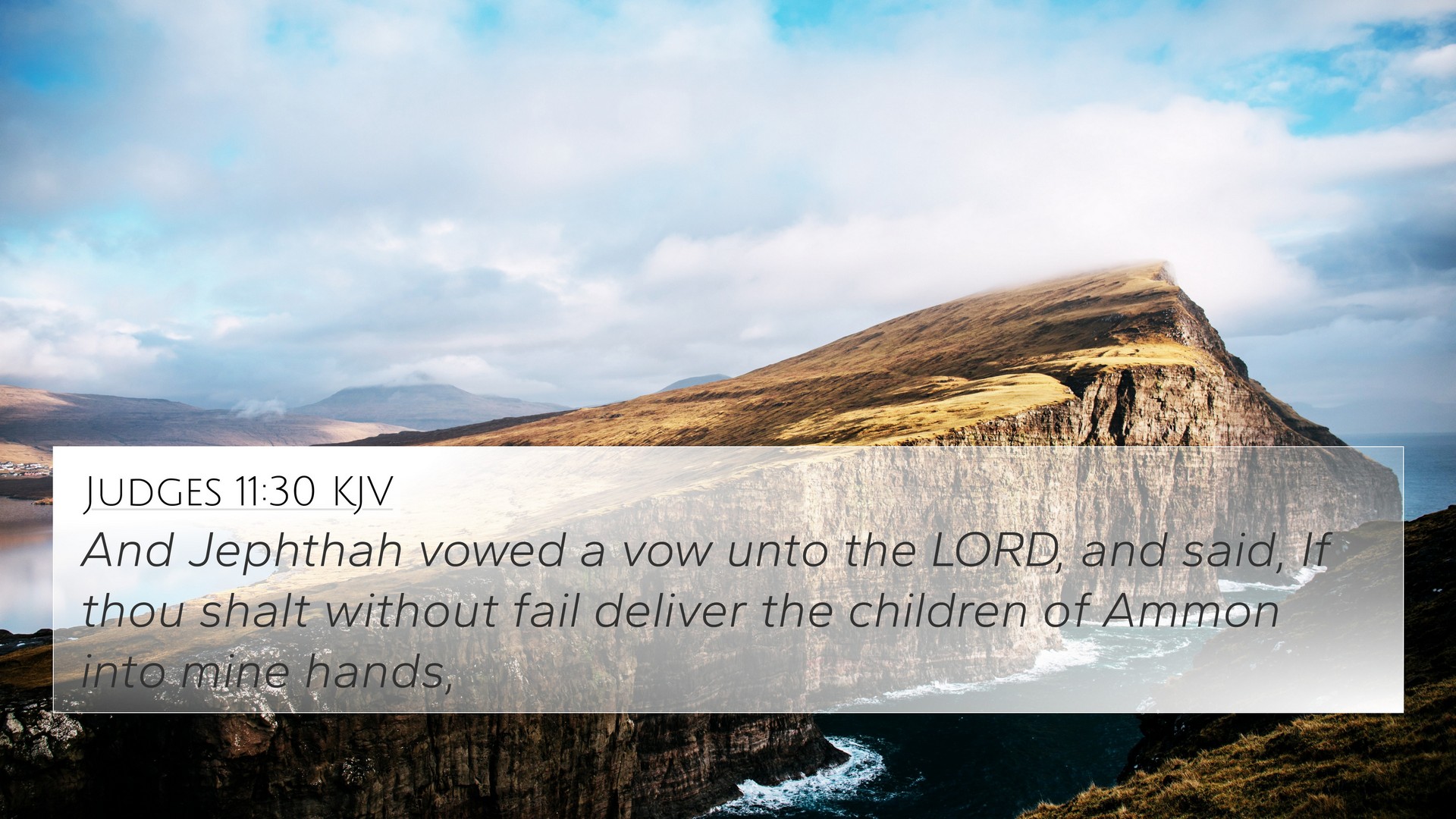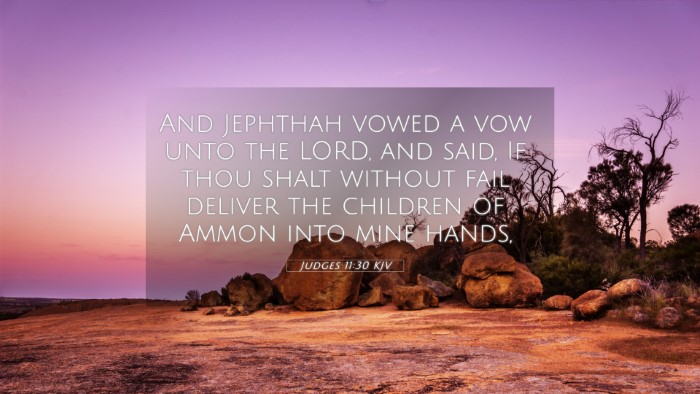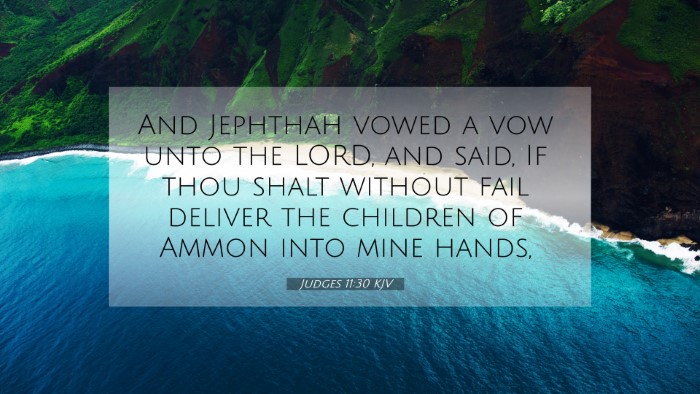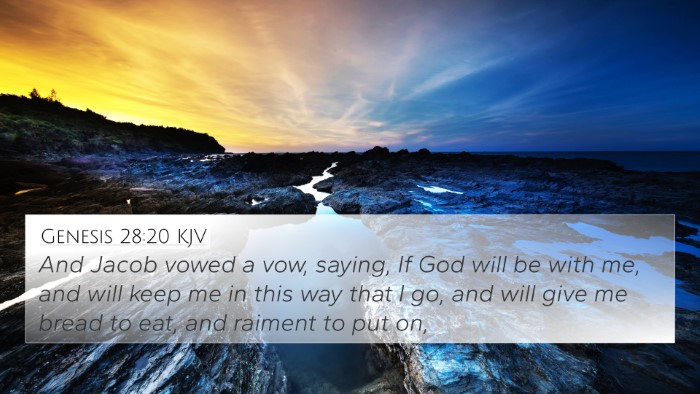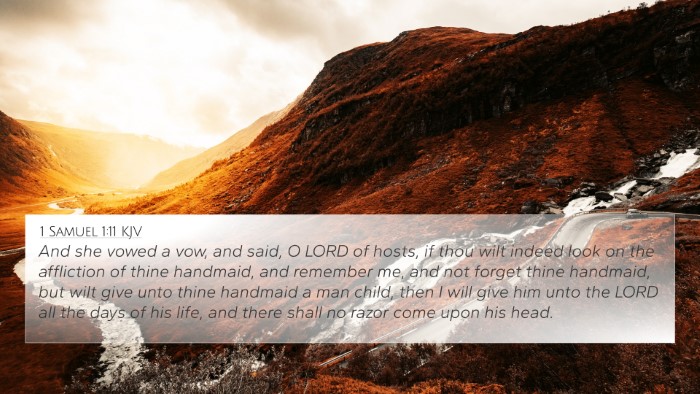Understanding Judges 11:30
Judges 11:30 states, "And Jephthah vowed a vow unto the LORD, and said, If thou shalt without fail deliver the children of Ammon into mine hands..." This verse is pivotal in understanding the character of Jephthah and the nature of vows made to God.
Verse Background
This chapter presents Jephthah, a judge of Israel, who is called upon to lead Israel against the Ammonites. His vow reflects a common practice in the ancient Near East, where leaders would appeal to their deity for victory, often making solemn promises in exchange for divine intervention.
Exegesis and Analysis
- Matthew Henry's Commentary: Henry reflects on Jephthah's impulsive vow, warning that such oaths can lead to dire consequences. He suggests that human needs should not dictate hasty promises to God.
- Albert Barnes Commentary: Barnes emphasizes the seriousness of making vows and the necessity of fulfilling them. He notes that Jephthah's desire for victory should lead to faithful worship rather than rash promises.
- Adam Clarke's Commentary: Clarke points out that the context of Jephthah’s vow highlights both his desperation and his faith. He recognizes that while God can be moved by faith, the form of the vow should not contradict moral propriety.
Thematic Connections
This verse illustrates several themes in the Bible, including:
- The nature of God and His sovereignty over victory.
- The importance of vows and the responsibilities they entail.
- The fine line between faith and rashness in making promises to God.
Cross-Referenced Bible Verses
To further understand Judges 11:30, it is important to connect it with other scriptures that discuss similar themes. Below are some related passages:
- Numbers 30:2: Discusses the seriousness of vows and the obligation to fulfill them.
- 1 Samuel 1:11: Hannah’s vow when asking for a son demonstrates a similar interaction with God in making solemn promises.
- Proverbs 20:25: Warns against making hasty vows, stating they can lead to negative consequences.
- Ecclesiastes 5:4-5: Emphasizes the importance of fulfilling vows and advises against making them lightly.
- Hebrews 6:16: Touches upon the immutability of God and how His promises are sure, contrasting with human failures.
- Lamentations 3:34-36: Discusses injustice and the importance of careful judgments, reflecting God’s character.
- Matthew 5:33-37: Jesus speaks about vows and oaths, urging sincerity and truthfulness.
Inter-Biblical Dialogue
Examining Judges 11:30 in light of the entire Biblical narrative brings to focus the interaction between humanity and divine will. The exchanges seen here resonate through subsequent scripture about the nature of faith, the significance of vows, and the consequences of our commitments before God.
The Importance of Contextual Interpretation
Understanding this scripture in the context of the historical, cultural, and spiritual practices of the Israelites can enhance appreciation for its meaning. This approach aligns with effective methods for Bible cross-referencing, allowing readers to uncover deeper insights.
Conclusion
Jephthah’s vow in Judges 11:30 serves as a powerful reminder about the weight of words and promises made to God. By examining this verse alongside related scriptures, one can appreciate the broader implications of human commitments in the light of divine expectations.
